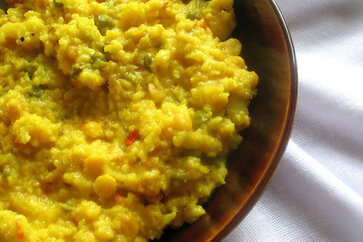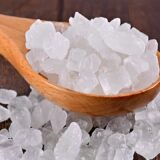Ayurvedic Medicine for Kidney Health: Top Herbs and Medicine
Ayurveda, the ancient Indian system of medicine, recognizes the importance of kidney health. It views the kidneys as a part of the vata dosha, which governs movement, elimination, and the nervous system. According to Ayurveda, imbalances in the vata dosha, characterized by qualities like dryness, roughness, and lightness, can manifest as kidney dysfunction. 
This can lead to a range of symptoms, including excessive thirst, frequent urination, urinary tract infections, and even more severe conditions if left untreated.
When the vata dosha is out of balance, it can disrupt the normal functioning of the kidneys, leading to issues such as:
- Reduced filtration: The kidneys may not be able to effectively filter waste products from the blood.
- Fluid imbalances: The body’s fluid levels may become imbalanced, leading to issues like edema or dehydration.
- Blood pressure fluctuations: The kidneys play a crucial role in regulating blood pressure. When the vata dosha is imbalanced, blood pressure may become unstable.
- Nervous system disturbances: The vata dosha also governs the nervous system. When it is out of balance, it can affect the nerves that control the kidneys, leading to further dysfunction.
Therefore, addressing imbalances in the vata dosha is essential for maintaining optimal kidney health.
What Are the Kidneys?
The kidneys are two bean-shaped organs located in the lower back, on either side of the spine. They are vital to the body’s homeostatic functions and overall health.
Despite their small size, kidneys have a profound impact on the body’s physiological balance and play a central role in various critical processes.
Proper kidney function is essential for maintaining overall health, and any impairment in their function can lead to significant health issues.
Importance of the Kidneys in the Body
Filtration of Blood:
- Waste Removal: The kidneys filter approximately 50 gallons of blood daily, removing metabolic waste products, toxins, and excess substances, which are then excreted as urine. This filtration process helps prevent the accumulation of harmful substances in the bloodstream.
- Fluid Balance: They regulate the body’s fluid levels by adjusting the amount of urine produced, which is crucial for maintaining the balance of electrolytes and fluids.
Regulation of Blood Pressure:
- Renin Production: The kidneys produce renin, an enzyme that initiates a chain reaction to regulate blood pressure. This process involves adjusting blood vessel constriction and fluid volume to maintain stable blood pressure levels.
- Fluid Regulation: By controlling how much water is excreted or retained, the kidneys influence blood pressure and overall cardiovascular health.
Acid-Base Balance:
- pH Regulation: The kidneys help maintain the body’s acid-base balance by excreting hydrogen ions and reabsorbing bicarbonate from the urine. This regulation ensures that blood pH remains within a healthy range, which is crucial for enzyme function and metabolic processes.
Production of Erythropoietin:
- Red Blood Cell Production: In response to low oxygen levels, the kidneys produce erythropoietin, a hormone that stimulates the production of red blood cells in the bone marrow. This is essential for transporting oxygen throughout the body.
Bone Health:
- Vitamin D Activation: The kidneys convert inactive vitamin D from the diet into its active form, which is necessary for calcium absorption in the intestines. This activation supports healthy bone formation and maintenance.
Detoxification:
- Excretion of Metabolites: Beyond waste removal, the kidneys also play a role in detoxifying the body by filtering out harmful substances, including drugs and metabolic byproducts, from the bloodstream.
In summary, the kidneys are crucial for maintaining fluid and electrolyte balance, regulating blood pressure, supporting red blood cell production, and ensuring proper bone health.
Their role in detoxification and waste removal underscores their importance in sustaining overall health and preventing various medical conditions.
Understanding Ayurveda’s Approach to Kidney Health
Ayurveda, a traditional system of medicine originating in India, offers a holistic approach to health and well-being. It emphasizes balancing the body’s energies (doshas) and understanding the interplay between various physiological systems.
This ancient wisdom integrates seamlessly with modern medical practices, providing complementary strategies for maintaining kidney health.
The Role of Ayurveda in Modern Medicine
1. Holistic Perspective:
- Integration with Modern Practices: Ayurveda complements modern medicine by addressing the root causes of health issues and focusing on preventive care. While modern medicine often targets symptoms and specific diseases, Ayurveda emphasizes balance and overall well-being, offering strategies that can enhance conventional treatments.
- Personalized Care: Ayurveda provides individualized treatment plans based on one’s dosha (body type) and health condition, which can enhance the effectiveness of modern medical interventions by addressing unique needs.
2. Preventive and Supportive Role:
- Preventive Health: Ayurveda places a strong emphasis on prevention, encouraging lifestyle and dietary practices that support long-term health and prevent chronic diseases, including kidney issues.
- Supportive Therapies: Ayurvedic remedies and practices can support kidney function and overall health, potentially reducing the need for more invasive treatments and improving quality of life.
3. Integrative Approaches:
- Complementary Therapies: Integrating Ayurvedic practices with modern medical treatments can provide a comprehensive approach to health. For kidney health, this might include using Ayurvedic herbs and dietary recommendations alongside conventional therapies.
How Ayurveda Views Kidney Function
1. Dosha Imbalance:
Vata, Pitta, and Kapha: In Ayurveda, kidney health is influenced by the balance of the three doshas—Vata (air and ether), Pitta (fire and water), and Kapha (earth and water). Each dosha affects bodily functions differently:
- Vata Dosha: Imbalances in Vata can lead to dryness, dehydration, and poor circulation, impacting kidney function.
- Pitta Dosha: Excess Pitta can cause inflammation and excessive heat, potentially leading to conditions like kidney stones or infections.
- Kapha Dosha: An imbalance in Kapha may lead to fluid retention and sluggishness, affecting the kidneys’ ability to filter and excrete waste efficiently.
2. Srotas and Agni:
- Srotas: Ayurveda describes channels or pathways in the body called Srotas, which are responsible for the transport of nutrients and waste. The urinary system and kidneys are associated with specific Srotas, and their health is essential for proper waste elimination.
- Agni (Digestive Fire): Agni refers to the digestive fire, which is crucial for proper metabolism and detoxification. Healthy Agni supports effective waste processing and nutrient absorption, indirectly benefiting kidney function.
Common Kidney Problems Addressed by Ayurveda
Ayurveda, with its holistic approach, provides various remedies and strategies for managing common kidney issues. By addressing underlying imbalances and promoting overall health.
Ayurveda offers effective solutions for conditions such as Chronic Kidney Disease (CKD), kidney stones, and urinary tract infections (UTIs).
1. Understanding Chronic Kidney Disease (CKD)
Chronic Kidney Disease is a progressive condition characterized by the gradual loss of kidney function over time. It can result from various factors including diabetes, hypertension, and other underlying health issues.
- Ayurvedic Perspective: Ayurveda views CKD as an imbalance in the doshas, particularly Vata and Kapha, leading to impaired function of the kidneys and urinary system.
2. Dietary Recommendations:
- Hydrating Foods: Include foods that support kidney function and prevent dehydration, such as cucumbers, melons, and leafy greens.
- Low-Salt Diet: Reduce salt intake to minimize fluid retention and strain on the kidneys.
3. Herbal Remedies:
- Punarnava: Known for its diuretic and rejuvenating properties, it helps in reducing kidney inflammation and improving function.
- Gokshura: Promotes healthy kidney function and supports the urinary tract.
- Varuna: Traditionally used to support kidney health and treat urinary disorders.
4. Lifestyle Practices:
- Panchakarma: Ayurvedic detoxification therapies can help cleanse the body and support kidney health.
- Hydration: Ensure adequate water intake to support kidney function and prevent further damage.
2. Understanding Kidney Stones:
Kidney stones are hard mineral and salt deposits that form in the kidneys, causing pain and potential urinary obstruction.
- Ayurvedic Perspective: Ayurveda attributes kidney stones to an imbalance of Pitta and Kapha doshas, leading to excessive heat and accumulation of toxins in the urinary tract.
2. Dietary Recommendations:
- Cooling Foods: Consume foods that help reduce heat and inflammation, such as coconut, cilantro, and watermelon.
- Avoid High-Oxalate Foods: Limit intake of foods high in oxalates like spinach and nuts to prevent stone formation.
3. Herbal Remedies:
- Pashanbheda: Known for its stone-dissolving properties, it helps in breaking down and eliminating kidney stones.
- Kachnar: Used to address stone formation and support overall kidney health.
4. Lifestyle Practices:
- Regular Hydration: Drink plenty of water to help flush out stones and prevent new ones from forming.
- Yoga and Exercise: Gentle movements and exercises can help promote the passage of stones and improve urinary flow.
3. Understanding Urinary Tract Infections (UTIs)
UTIs are infections that affect the urinary system, including the kidneys, bladder, and urethra, often caused by bacteria.
- Ayurvedic Perspective: UTIs are typically associated with an imbalance in the Pitta dosha, leading to inflammation and infection in the urinary tract.
2. Dietary Recommendations:
- Cooling Foods and Herbs: Include foods that have cooling and anti-inflammatory properties, such as cucumber, coconut water, and aloe vera.
- Avoid Spicy and Irritating Foods: Reduce intake of spicy, acidic, or processed foods that can aggravate symptoms.
3. Herbal Remedies:
- Cranberry Extract: Known for its ability to prevent bacterial adherence to the urinary tract.
- Gokshura and Varuna: These herbs help reduce inflammation and support the urinary tract.
- Dandelion Root: Acts as a diuretic and helps in cleansing the urinary system.
4. Lifestyle Practices:
- Proper Hygiene: Maintain good personal hygiene to prevent infections.
- Adequate Hydration: Drink plenty of fluids to flush out bacteria and support urinary health.
Top 5 Ayurvedic Herbs for Kidney Health
Ayurveda utilizes a variety of herbs to support kidney function, each offering unique benefits for maintaining and enhancing renal health. Here’s an overview of some key Ayurvedic herbs for kidney health:
Punarnava (Boerhaavia diffusa) is an Ayurvedic herb renowned for its rejuvenating and detoxifying properties. It supports the body’s natural processes by enhancing kidney function, reducing inflammation, and promoting overall vitality.
Benefits and Usage:
- Diuretic Properties: Punarnava is renowned for its diuretic effects, which help increase urine output and flush out toxins from the kidneys and urinary tract.
- Anti-Inflammatory: It has anti-inflammatory properties that help reduce kidney inflammation and support overall kidney function.
- Rejuvenating: Known for its rejuvenating qualities, it aids in regenerating kidney tissues and improving overall kidney health.
- Usage: Punarnava can be used as a powder, in capsules, or as a decoction. Typically, a dose of 1-2 grams of the powder is taken twice daily, or as directed by a healthcare provider.
2. Gokshura (Tribulus Terrestris)
Gokshura (Tribulus terrestris) is a revered Ayurvedic herb known for its ability to boost vitality and support reproductive health. It enhances physical stamina, promotes healthy urinary function, and helps balance hormones.
Benefits and Usage:
- Kidney Support: Gokshura is beneficial for promoting healthy kidney function and maintaining the balance of fluids in the body.
- Urinary Health: It helps support the urinary tract, reducing the risk of urinary infections and promoting proper urine flow.
- Anti-Inflammatory: Exhibits anti-inflammatory properties that can help manage inflammation in the kidneys and urinary system.
- Usage: Gokshura can be consumed in various forms, including capsules, powders, or decoctions. A common dosage is 500 mg to 1 gram of the powder, taken twice daily, or as recommended by a healthcare professional.
3. Varun (Crataeva Nurvala)
Varun (Crataeva nurvala) is a valued Ayurvedic herb renowned for its supportive role in urinary health. It helps maintain kidney function, reduces inflammation, and promotes the overall health of the urinary tract.
Benefits and Usage:
- Stone Dissolver: Varun is traditionally used to help dissolve and expel kidney stones, promoting their natural elimination from the body.
- Anti-Urolithic: It has anti-urolithic properties that prevent the formation of new stones and support overall urinary health.
- Diuretic Effect: Enhances urine production, which helps in flushing out toxins and reducing fluid retention.
- Usage: Varun is often used in the form of powder or decoction. A typical dose is 1-2 grams of powder twice daily or as advised by a practitioner.
4. Palash (Butea Monosperma)
Palash (Butea monosperma) is an important Ayurvedic herb known for its anti-inflammatory and astringent properties. It supports digestive health, helps manage respiratory issues, and aids in skin healing and detoxification.
Benefits and Usage:
- Kidney Health: Palash supports kidney health by improving blood circulation to the kidneys and reducing inflammation.
- Anti-Diabetic: It helps regulate blood sugar levels, which is beneficial for preventing diabetic nephropathy (kidney damage due to diabetes).
- Antioxidant: Contains antioxidants that protect kidney tissues from oxidative stress and damage.
- Usage: Palash is commonly used as a powder or in the form of herbal extracts. A typical dosage is 1 gram of powder, taken twice daily, or as per professional advice.
5. Shirish (Albizia Lebbeck)
Shirish (Albizia lebbeck) is a versatile Ayurvedic herb celebrated for its calming and anti-inflammatory properties. It is used to support mental health, alleviate stress, and promote joint and respiratory health.
Benefits and Usage:
- Kidney Detoxification: Shirish aids in detoxifying the kidneys and supporting their natural cleansing processes.
- Anti-Inflammatory: It has anti-inflammatory properties that help reduce inflammation in the kidneys and urinary tract.
- Supporting Renal Health: Enhances overall kidney function and helps in managing conditions related to kidney health.
- Usage: Shirish can be consumed as a powder or in herbal formulations. A usual dose is 1-2 grams of powder daily or as prescribed by an Ayurvedic practitioner.
Ayurvedic Medicine Formulations for Kidney Health
Ayurvedic formulations are carefully crafted to support kidney health through a blend of herbs and natural ingredients.
These formulations aim to balance doshas, enhance kidney function, and address specific kidney-related conditions. Here’s an overview of some notable Ayurvedic formulations for kidney health:
1. Chandraprabha Vati
Composition and Benefits:
- Ingredients: Chandraprabha Vati is a classical formulation that includes ingredients such as Chandraprabha (Moonstone), Gokshura (Tribulus Terrestris), Shilajit, and various other herbs like Pippali and Haritaki.
Benefits:
- Supports Kidney Function: Helps in maintaining proper kidney function and improving urinary flow.
- Anti-Inflammatory: Reduces inflammation in the urinary tract and kidneys.
- Stone Dissolution: Aids in the dissolution and prevention of kidney stones.
- Diuretic Effect: Promotes healthy urine production and supports the elimination of waste.
Usage: Typically available in tablet or powder form. The usual dosage is 1-2 tablets, twice daily, or as directed by an Ayurvedic practitioner.
2. Gokshuradi Guggulu
Composition and Benefits:
- Ingredients: Gokshuradi Guggulu combines Gokshura (Tribulus Terrestris), Guggulu (Commiphora wightii), and other supportive herbs like Pippali and Amalaki.
Benefits:
- Supports Kidney Health: Enhances kidney function and promotes overall renal health.
- Anti-Urolithic: Helps in breaking down and preventing kidney stones.
- Anti-Inflammatory: Reduces inflammation and supports urinary tract health.
- Detoxification: Aids in detoxifying the kidneys and improving fluid balance.
Usage: Commonly found in tablet or powder form. The typical dosage is 1-2 tablets, twice daily, or as advised by a healthcare provider.
Composition and Benefits:
- Ingredients: This formulation primarily includes Punarnava (Boerhaavia diffusa), along with other herbs like Gokshura (Tribulus Terrestris) and Varuna (Crataeva nurvala).
Benefits:
- Diuretic Effect: Promotes increased urine production and helps flush out excess fluids and toxins.
- Rejuvenating: Supports the regeneration and overall health of kidney tissues.
- Anti-Inflammatory: Helps reduce inflammation in the kidneys and urinary tract.
- Kidney Support: Enhances overall kidney function and detoxification.
Usage: Usually taken as a decoction. The typical dosage is 10-20 ml of the Kashayam, twice daily, or as directed by an Ayurvedic practitioner.
4. Varunadi Kwath
Composition and Benefits:
- Ingredients: Varunadi Kwath primarily includes Varun (Crataeva nurvala), along with other supportive herbs like Gokshura (Tribulus Terrestris) and Punarnava (Boerhaavia diffusa).
Benefits:
- Stone Dissolution: Effective in dissolving and expelling kidney stones.
- Anti-Urolithic: Prevents the formation of new stones and supports the removal of existing ones.
- Diuretic Effect: Increases urine production to aid in flushing out toxins and excess fluids.
- Supports Urinary Health: Enhances overall health of the urinary tract and kidneys.
Usage: Typically used as a decoction or Kashayam. The usual dosage is 10-20 ml, twice daily, or as recommended by a healthcare professional.
Ayurvedic Lifestyle Recommendations for Kidney Health
Maintaining kidney health is crucial for overall well-being, and Ayurveda provides comprehensive guidelines that encompass dietary choices, lifestyle practices, and hydration strategies.
Following these recommendations can help support kidney function and prevent common kidney issues.
Dietary Guidelines
1. Balancing Doshas:
- Vata Imbalance: For those with a Vata imbalance, favor warm, moist, and nourishing foods. Avoid excessive dry or cold foods, which can exacerbate Vata.
- Pitta Imbalance: For Pitta types, consume cooling and soothing foods. Avoid spicy, acidic, and heating foods that can aggravate Pitta.
- Kapha Imbalance: For Kapha types, opt for light, warming, and stimulating foods. Avoid heavy, oily, and excessively sweet foods that can increase Kapha.
2. Kidney-Friendly Foods:
- Hydrating Foods: Include foods with high water content such as cucumbers, melons, and leafy greens to support kidney function and hydration.
- Anti-Inflammatory Foods: Incorporate turmeric, ginger, and garlic to reduce inflammation and support overall kidney health.
- Low-Salt Diet: Minimize salt intake to prevent fluid retention and reduce the strain on the kidneys.
- Balanced Meals: Ensure meals are balanced with all six tastes—sweet, sour, salty, bitter, pungent, and astringent—to support optimal digestion and nutrient absorption.
3. Avoiding Harmful Foods:
- Excessive Protein: Limit intake of high-protein foods, especially animal proteins, to reduce kidney load.
- Processed Foods: Avoid processed and packaged foods that contain high levels of sodium and artificial additives.
- High-Oxalate Foods: Reduce consumption of foods high in oxalates, such as spinach and nuts, to prevent kidney stone formation.
Lifestyle Practices
1. Regular Exercise:
- Moderate Activities: Engage in moderate exercises like walking, yoga, or swimming. These activities support overall health, improve circulation, and aid in maintaining a healthy weight.
- Dosha-Specific Exercises: Choose exercises based on your dosha. Vata types benefit from grounding activities, Pitta types from cooling exercises, and Kapha types from stimulating workouts.
2. Stress Management:
- Yoga and Meditation: Incorporate yoga and meditation into your daily routine to manage stress and balance energy. These practices help lower cortisol levels and promote relaxation.
- Deep Breathing: Practice deep breathing exercises to enhance oxygen flow, reduce stress, and support kidney function.
3. Adequate Sleep:
- Quality Rest: Ensure you get 7-8 hours of quality sleep each night. Proper rest supports kidney function, regulates hunger hormones, and contributes to overall health.
4. Routine and Balance:
- Consistent Eating Schedule: Eat meals at regular times each day to regulate digestion and prevent strain on the kidneys.
- Avoid Overeating: Practice mindful eating by listening to your body’s hunger and fullness cues to avoid overeating.
Hydration Tips
1. Adequate Water Intake:
- Daily Hydration: Drink at least 8-10 glasses of water daily to support kidney function and help flush out toxins. Adjust intake based on activity level and climate.
- Warm Water: Opt for warm or room temperature water, which is easier on the digestive system and supports overall health.
2. Herbal Teas:
- Kidney-Supporting Teas: Consume herbal teas such as those made from Gokshura, Punarnava, or dandelion root, which support kidney health and enhance detoxification.
- Avoid Caffeine: Limit intake of caffeinated beverages, which can lead to dehydration and strain on the kidneys.
3. Hydrating Foods:
- Include Hydrating Fruits and Vegetables: Add water-rich fruits and vegetables to your diet to support hydration and kidney health.
Adopting Ayurvedic lifestyle recommendations supports kidney health by balancing doshas, choosing kidney-friendly foods, and maintaining proper hydration. These practices enhance overall well-being and help prevent kidney-related issues.

























